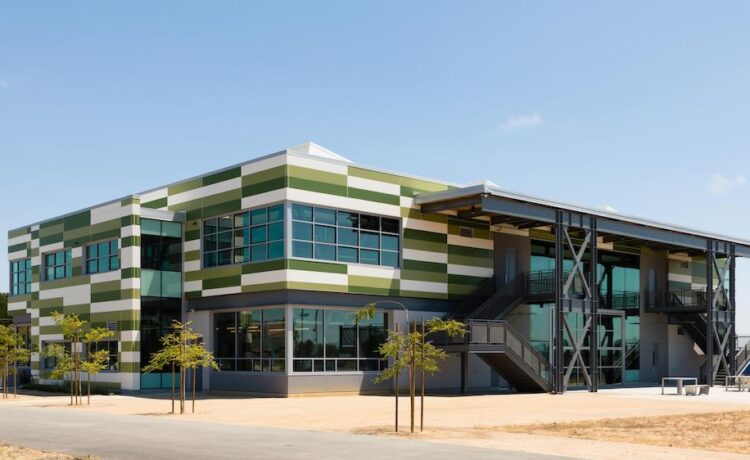The Transformative Power of Education: Building Pathways for the Future

Education has always been the foundation of human progress, shaping not only individual lives but also the growth of societies. In today’s rapidly changing world, the importance of education extends beyond traditional classrooms and textbooks. It is about fostering critical thinking, developing adaptable skills, and preparing individuals to thrive in a globalised environment. High-quality education empowers people to unlock opportunities, reduce inequalities, and contribute meaningfully to their communities. The value of education cannot be overstated, as it provides both personal growth and societal advancement.
Why Education Matters in the Modern World
Education is more than acquiring knowledge; it is the process of equipping people with tools to navigate life. In the UK and worldwide, a strong education system helps individuals:
-
Develop problem-solving and analytical skills
-
Improve employment prospects and career mobility
-
Build social awareness and civic responsibility
-
Enhance personal well-being and confidence
The ability to learn, unlearn, and relearn has become crucial. The demand for lifelong learning means education is no longer confined to early years but is instead a continuous journey.
The Evolution of Education
From Traditional to Digital Learning
Education has evolved significantly from the era of chalkboards to the digital age. Technology has expanded access to knowledge, making it possible for learners to access resources online at any time. Virtual classrooms, interactive learning tools, and digital platforms have created new opportunities for students across the globe.
The Rise of Personalised Learning
Personalisation is becoming a key trend in education. Unlike the one-size-fits-all model, personalised learning adapts to the pace, style, and needs of individual students. This approach recognises that every learner is unique and benefits most from customised teaching strategies.
The Role of Teachers in a Changing Landscape
Teachers remain at the heart of education, even as technology becomes more integrated. Their role is shifting from information providers to facilitators of learning. Great educators not only deliver knowledge but also inspire curiosity, creativity, and resilience.
Key responsibilities of modern educators include:
-
Encouraging critical thinking rather than rote memorisation
-
Integrating digital tools to enhance engagement
-
Supporting emotional and social development
-
Preparing students for real-world challenges
The Economic Impact of Education
Education is one of the strongest drivers of economic growth. Studies consistently show that better-educated societies are more innovative, competitive, and resilient. Countries that prioritise education often experience higher productivity, improved living standards, and stronger job markets.
For individuals, the benefits are equally clear:
-
Higher lifetime earnings
-
Greater career flexibility
-
Stronger job security
-
Improved access to leadership positions
Overcoming Barriers to Education
Despite its importance, barriers to education remain significant across the world. These obstacles can be social, economic, or structural.
Common Barriers
-
Financial constraints: Many families struggle to afford tuition or educational resources.
-
Geographical limitations: Rural and remote communities often lack access to quality schools.
-
Inequalities: Gender, disability, and social status can hinder access to opportunities.
-
Digital divide: Not all students have equal access to technology and internet connectivity.
Overcoming these challenges requires policies that promote inclusion, investment in infrastructure, and community-based solutions.
Lifelong Learning and Skills Development
Education is not limited to childhood or early adulthood. The idea of lifelong learning is gaining importance, particularly in the workplace. Continuous training and skill development enable people to stay competitive in industries shaped by automation and digital innovation.
Examples of lifelong learning opportunities include:
-
Professional certifications
-
Online courses and micro-credentials
-
Apprenticeships and vocational training
-
Community-based adult education
The Social Benefits of Education
Beyond economic advantages, education strengthens the social fabric. It encourages empathy, tolerance, and cultural understanding. Educated communities are often more democratic, with stronger institutions and reduced crime rates. By fostering awareness of global issues such as climate change and inequality, education equips individuals to take part in collective solutions.
Education and Mental Well-Being
Education also plays a role in mental and emotional health. Students who feel supported in their learning environments tend to develop higher self-esteem and resilience. Schools and universities that prioritise well-being can help reduce anxiety and stress, preparing learners to cope with future challenges.
Future Trends in Education
Looking ahead, education will continue to evolve. Some trends likely to shape the sector include:
-
Hybrid learning models that combine in-person and online methods
-
Artificial intelligence tools to support personalised learning journeys
-
Greater emphasis on soft skills such as communication, collaboration, and adaptability
-
Global collaboration between schools, universities, and industries
These shifts signal a future where education becomes increasingly flexible, inclusive, and responsive to global needs.
Frequently Asked Questions
How does education reduce inequality?
Education provides equal opportunities by giving individuals the skills and knowledge to compete in the workforce. Access to education helps reduce the gap between different social groups and promotes upward mobility.
Is higher education still worth it in today’s job market?
Yes. While costs can be high, higher education often leads to better career prospects, higher salaries, and personal growth. Many industries still value degrees, although alternative pathways like apprenticeships and vocational training are also gaining recognition.
What role does technology play in education today?
Technology supports accessibility, engagement, and flexibility. From online learning platforms to AI-driven tools, technology makes it easier for learners to access resources and tailor their educational journeys.
How can parents support their child’s education at home?
Parents can:
-
Create a positive and distraction-free study environment
-
Encourage curiosity and reading habits
-
Support time management and organisational skills
-
Stay engaged with teachers and school activities
What skills are most important for the future of education?
Adaptability, problem-solving, creativity, and emotional intelligence are crucial. Alongside traditional academic knowledge, these skills help students thrive in unpredictable work environments.








